14 Essential Things To Prepare Your Horse For Long Distance Travel
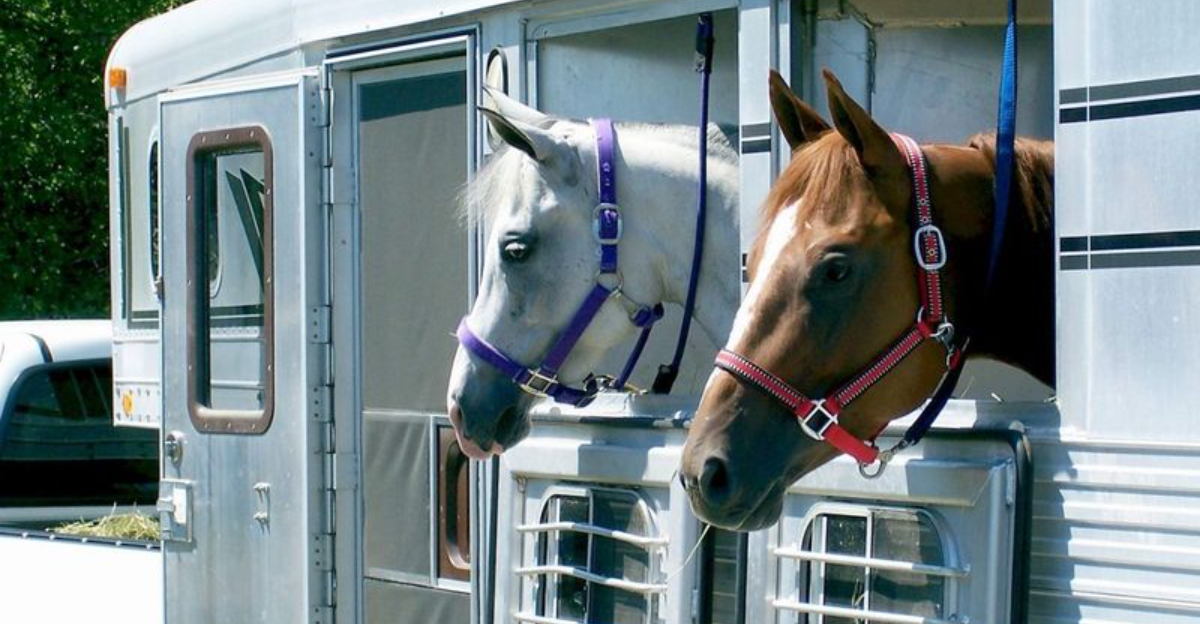
Taking your horse on a long journey requires careful planning and preparation. Whether you’re heading to a competition, relocating, or going on a trail adventure, your horse’s comfort and safety should be your top priority.
Proper preparation not only reduces stress for your equine friend but also prevents potential health issues that could arise during travel.
1. Health Check-up Before Departure
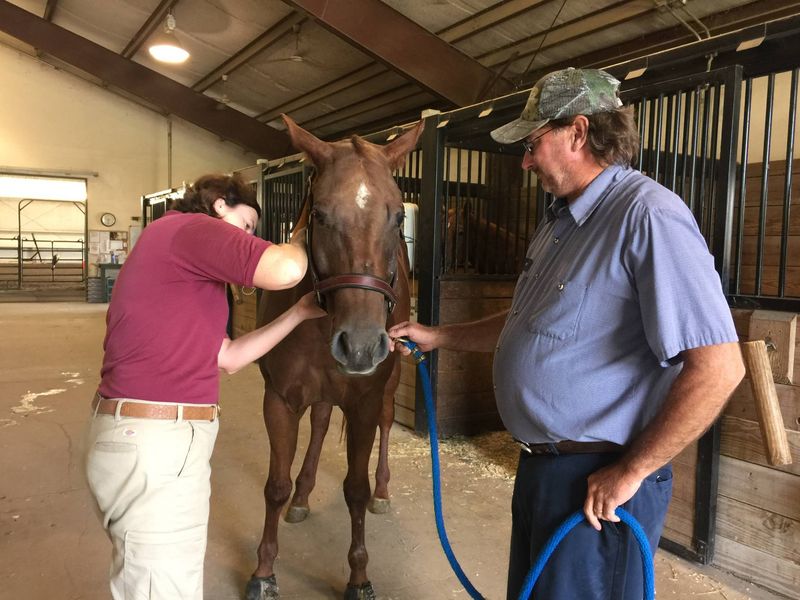
Schedule a vet visit at least two weeks before your trip. Your veterinarian can spot potential issues that might worsen during travel stress.
Request a health certificate if crossing state lines or international borders – most places require this documentation. Make sure vaccinations are current and discuss any travel-specific medications your horse might need.
2. Travel Documentation Kit
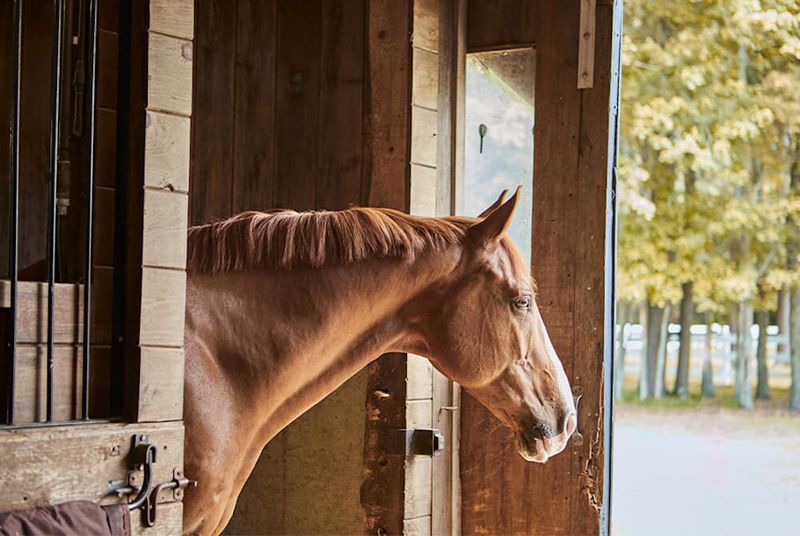
Create a folder containing your horse’s medical records, vaccination history, and ownership papers. Include recent photos from multiple angles in case your horse gets lost.
Add emergency contact information for vets along your route. Smart travelers make copies of everything – one set for the trailer and another for your personal bag.
3. Trailer Training Sessions
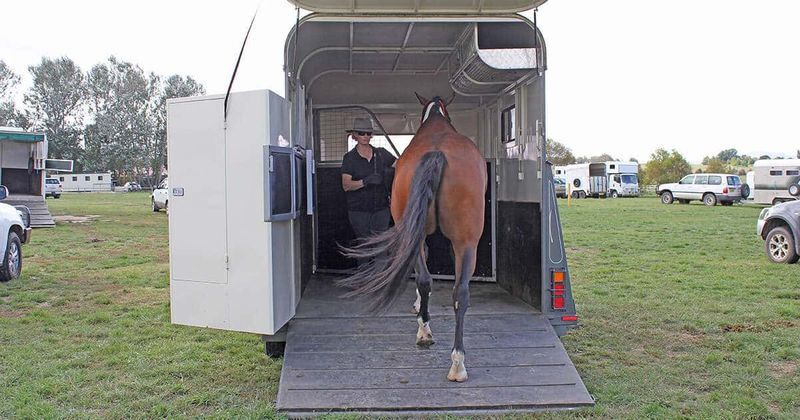
Nervous horses need practice loading and standing in trailers before the big trip. Start with short sessions where your horse just stands in the parked trailer.
Gradually increase to brief drives around your property, then longer excursions. Reward calm behavior with treats and praise. These practice runs help identify potential problems and build your horse’s confidence.
4. Protective Leg Wraps
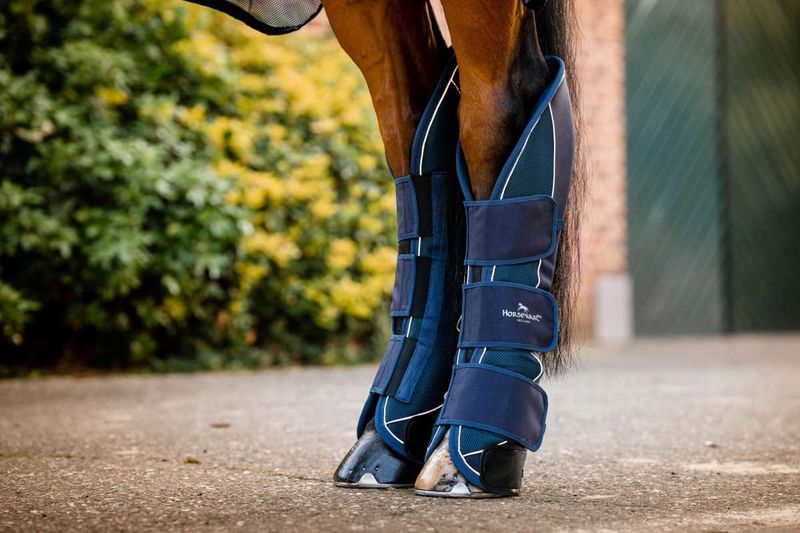
Guard your horse’s legs against bumps and scrapes with quality shipping boots or wraps. Practice putting them on before travel day so your horse gets used to the feeling.
Check for proper fit – too tight causes circulation problems while too loose might slip and cause tripping. Remember to remove them during long stops to give your horse’s legs a breather.
5. Hydration Strategy
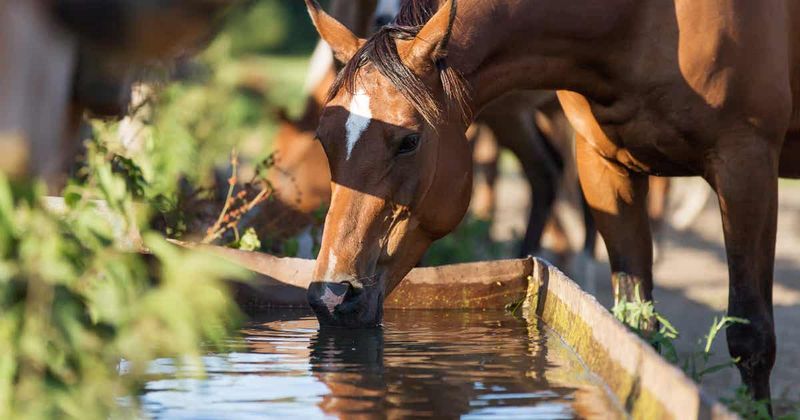
Horses often refuse unfamiliar water, risking dangerous dehydration during travel. Start flavoring home water with apple juice or electrolytes a week before departure.
Bring several gallons from home to mix with local water at destinations. Offer water at least every 4 hours during the journey. Some savvy owners use mash buckets which encourage drinking while providing nutrients.
6. First Aid Supplies
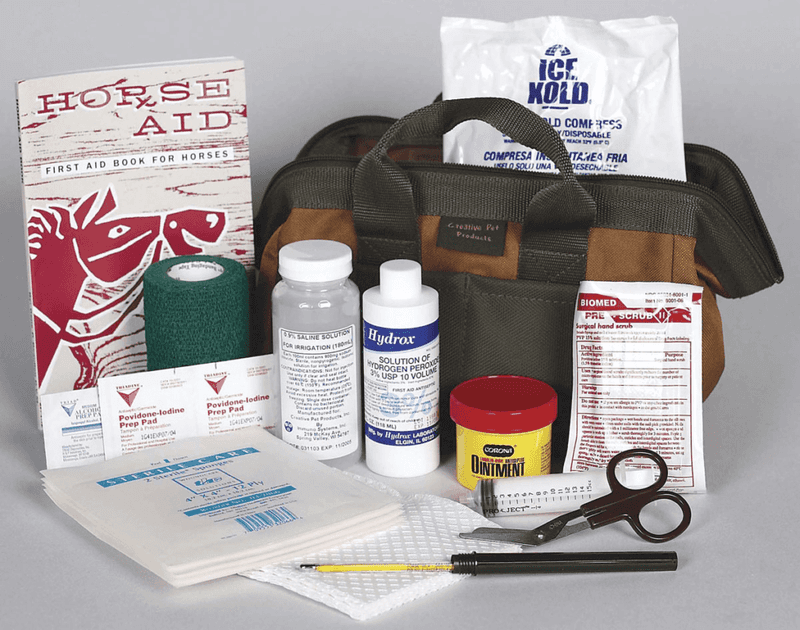
Pack a dedicated equine first aid kit with bandages, antiseptic solution, thermometer, and wound dressing. Include any medications your horse takes regularly.
Add vet wrap, scissors, tweezers, and a flashlight for nighttime emergencies. Store phone numbers for emergency veterinary services along your route where they’re easily accessible, not buried in your luggage.
7. Comfortable Hauling Headgear
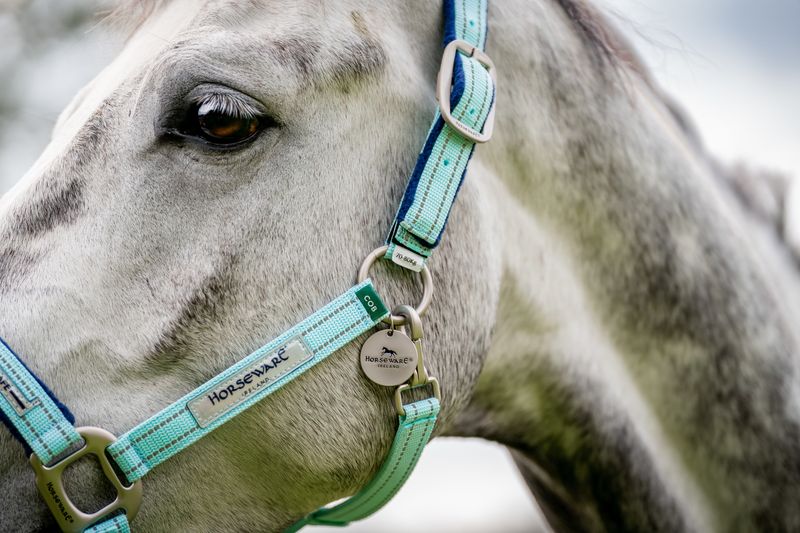
Choose between a leather halter for durability or breakaway nylon for safety if your horse gets caught on something. Never travel with a rope halter – they lack the quick-release feature needed in emergencies.
Attach an ID tag with your contact information. Some horses travel better in a cotton hood that protects the head and muffles frightening travel noises.
8. Familiar Feed Supply
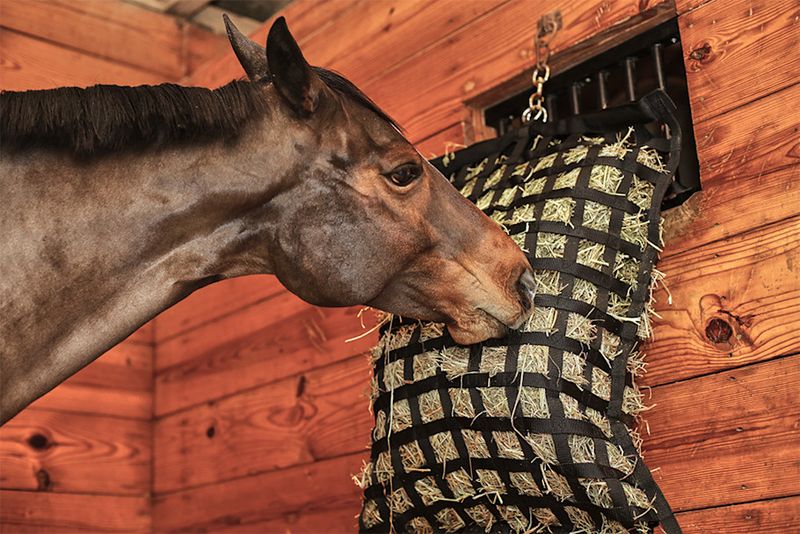
Bring enough of your horse’s regular feed to last the entire journey plus a few extra days. Sudden diet changes can cause digestive upset or dangerous colic.
Pack hay in small nets or bags for easy access during stops. Label everything with feeding instructions in case someone else needs to care for your horse. Consider adding probiotics before and during travel to support gut health.
9. Temperature Regulation Equipment
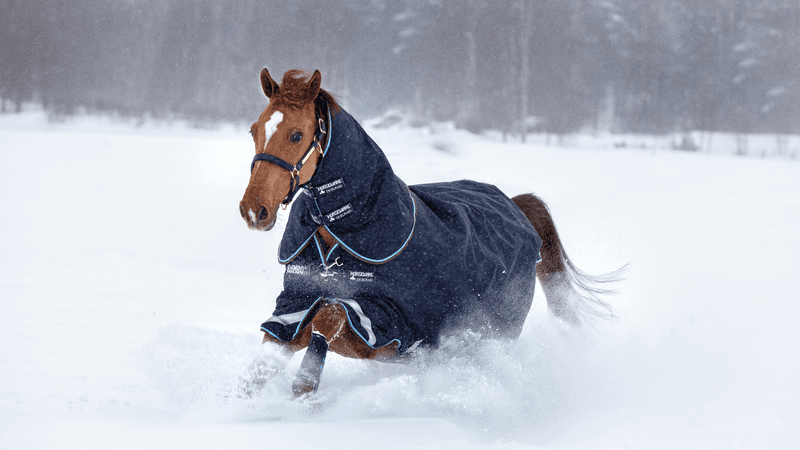
Weather conditions can change dramatically during long trips. Pack lightweight sheets for cool mornings and moisture-wicking coolers for hot afternoons.
Consider a trailer with good ventilation and windows that can be opened or closed as needed. For summer travel, bring a sponge and bucket to cool your horse during stops. Winter journeys require heavier blankets and protection from drafts.
10. Trailer Safety Check
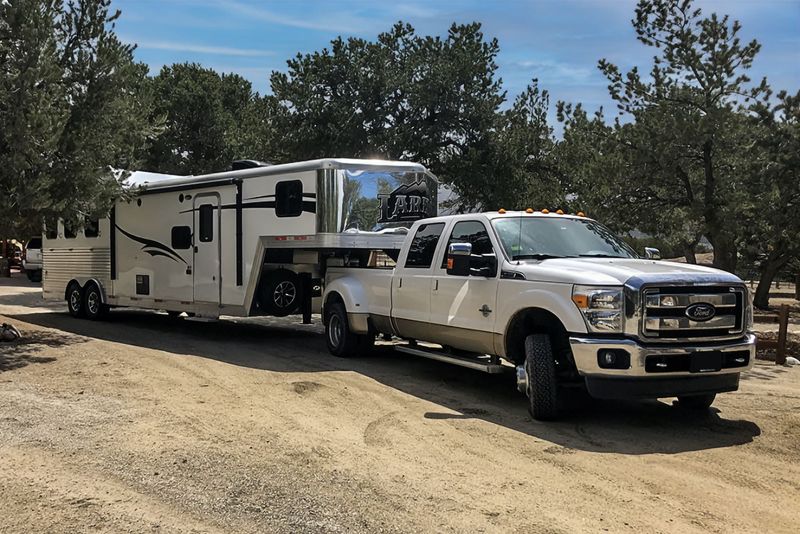
Inspect your trailer thoroughly before the big day. Check tires for proper inflation and wear, test all lights, and ensure floors are solid without weak spots.
Examine the hitch, chains, and electrical connections. Remove any sharp edges or protruding objects that could injure your horse. A rubber mat provides better footing than bare metal or wood floors.
11. Calming Aids For Anxious Travelers
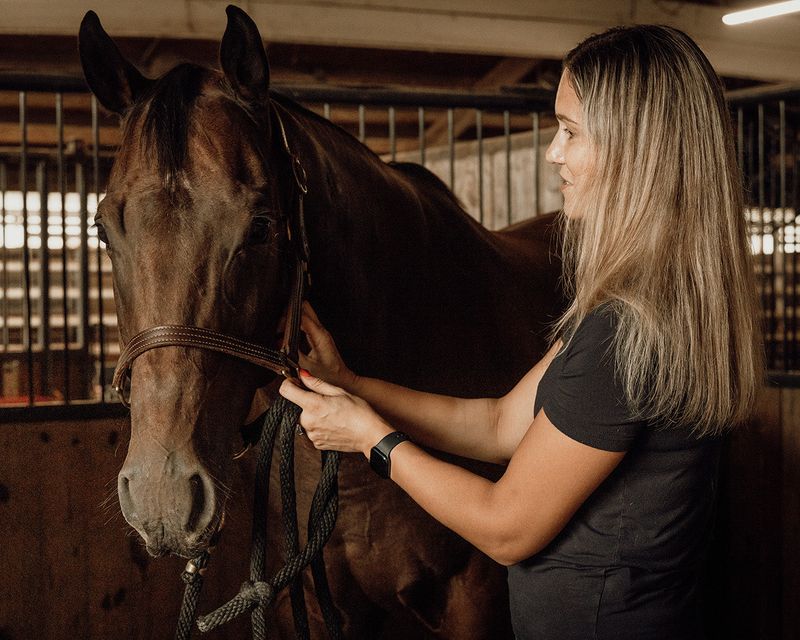
Consider natural supplements like chamomile or valerian root for mildly anxious horses. Start testing these at home before the trip to gauge effectiveness.
Lavender-scented bandanas tied to trailer fixtures can provide aromatherapy benefits. For severely anxious horses, talk to your vet about appropriate sedatives. Familiar objects like a favorite toy can also provide comfort.
12. Grooming Kit For Rest Stops
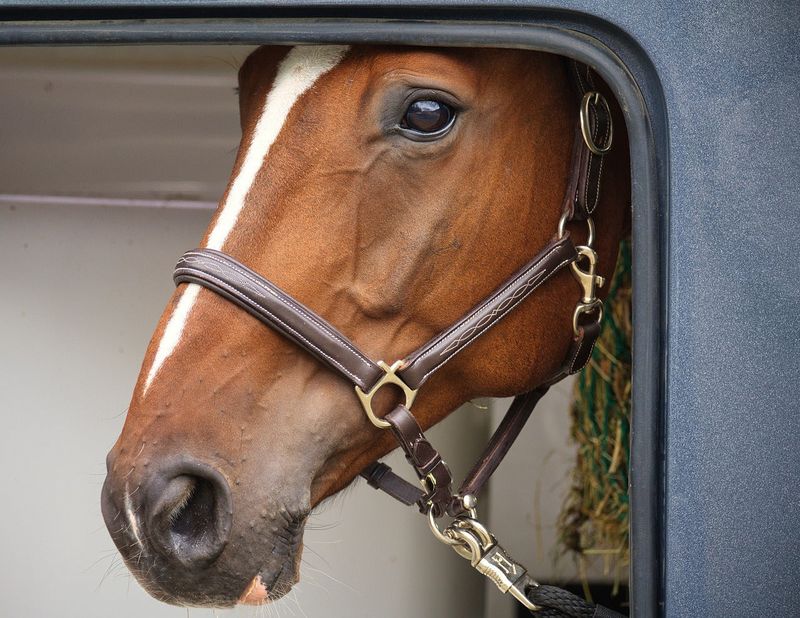
Pack a basic grooming kit for use during longer stops. A quick curry comb session improves circulation after hours of standing.
Include a sweat scraper to remove excess moisture on hot days. Hoof picks are essential for removing packed debris that could cause discomfort. These grooming breaks also give you a chance to check for any developing issues.
13. Rest Stop Planning Strategy
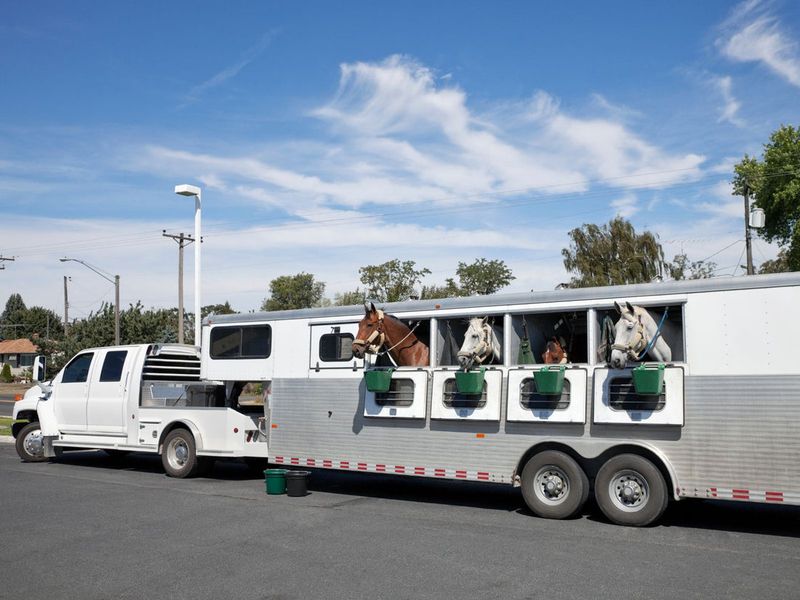
Map out stops every 4-6 hours where you can safely unload your horse. Look for fairgrounds or equestrian facilities rather than busy rest areas.
Call ahead to confirm availability and any requirements. During stops, offer water, hay, and a chance to stretch. Even if you can’t unload, stop to check on your horse, adjust ventilation, and offer water.
14. Emergency Response Plan
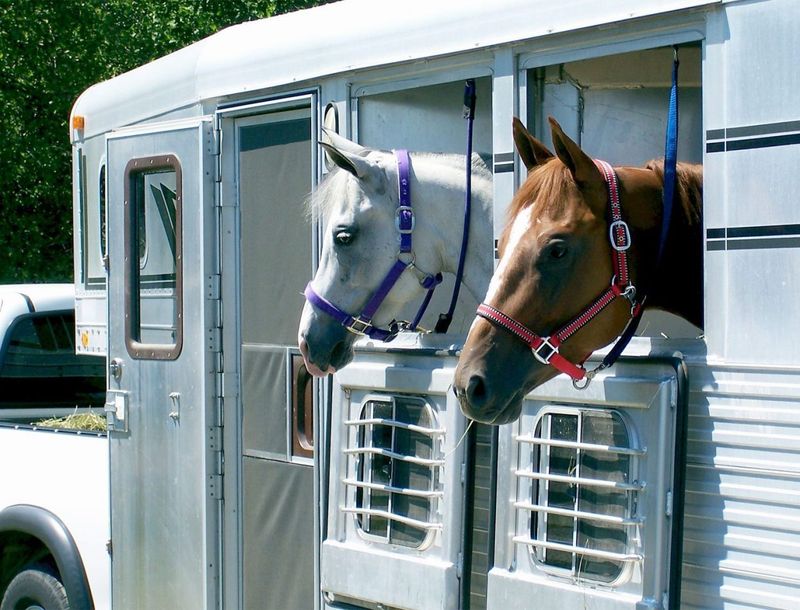
Create a detailed plan for potential emergencies. Research veterinary hospitals along your route and save their contact information.
Carry emergency release forms authorizing medical treatment if you’re incapacitated. Consider joining an equine roadside assistance program that specializes in trailer breakdowns with horses. Share your travel itinerary with someone who can send help if you don’t check in.






